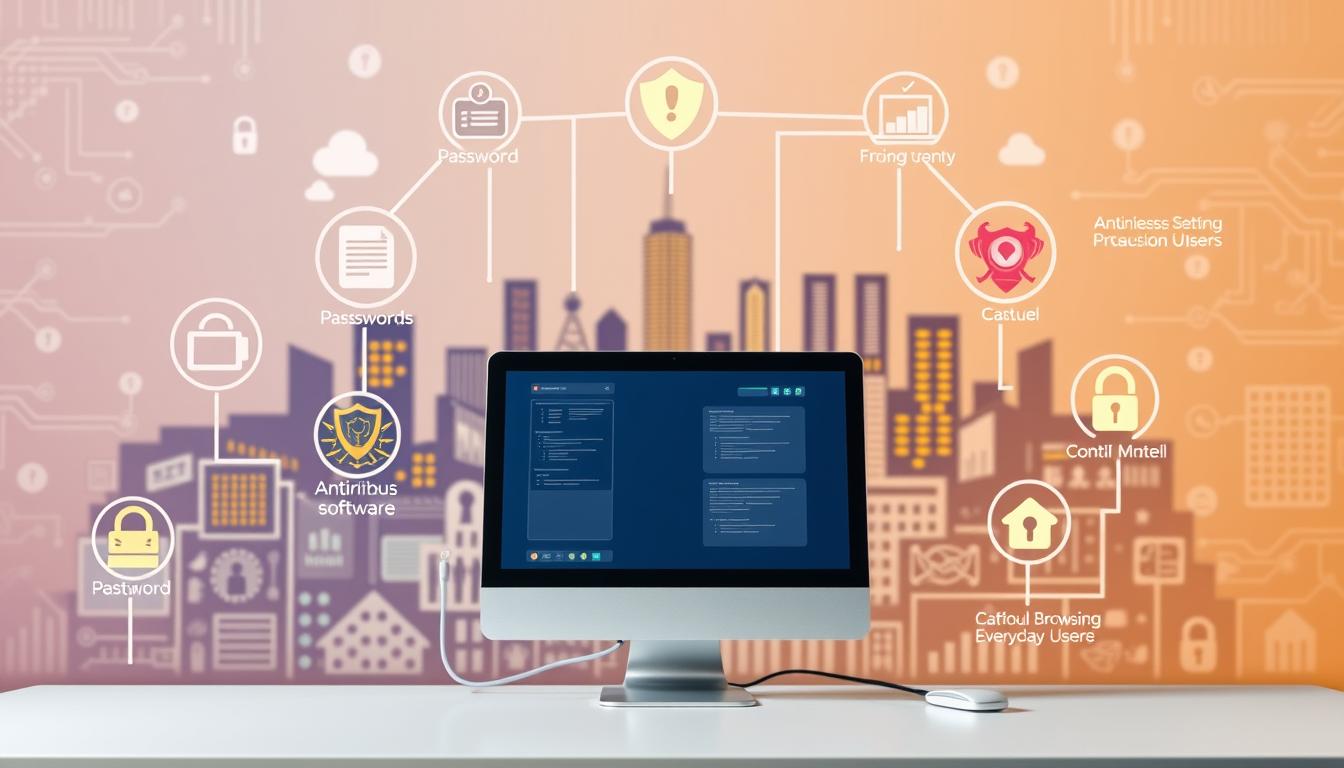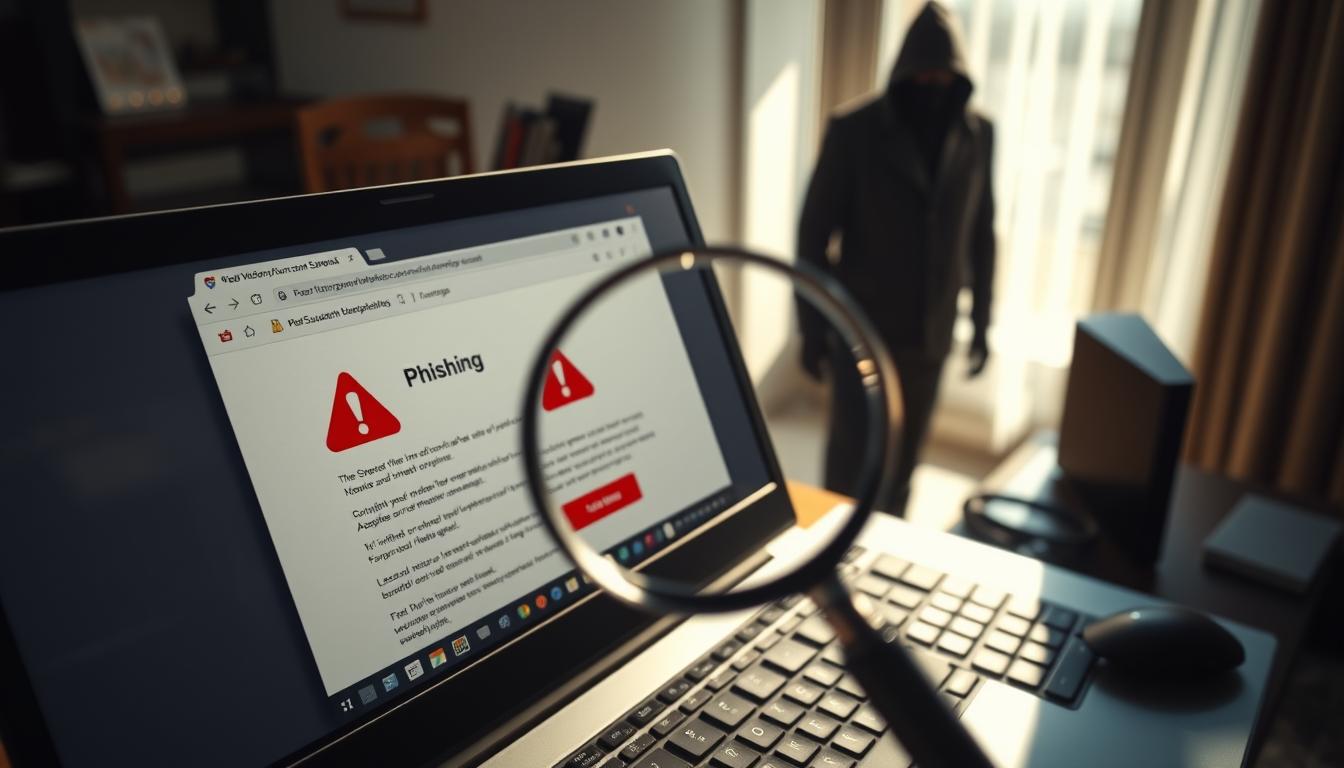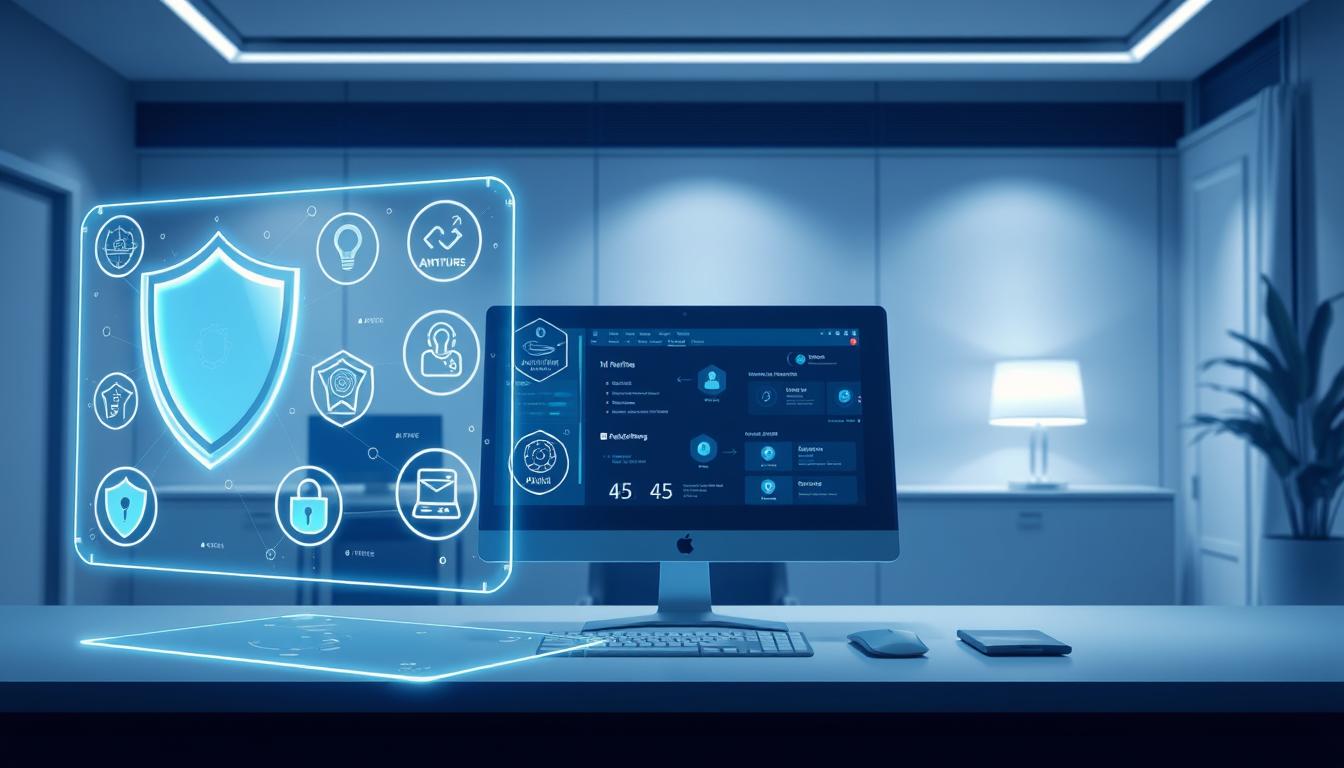The internet offers many chances, but it also has big risks. Your online life is full of valuable data that needs protection. With cyber threats growing, it’s key to know how to stay safe online.
In this article, we’ll share basic cybersecurity tips for everyday users. These tips can help keep your personal data safe and prevent online threats. By following these simple steps, you can feel more secure online.

Key Takeaways
- Understanding the significance of cybersecurity in daily life.
- Implementing strong and unique passwords for all accounts.
- Empowering two-factor verification for an extra layer of security.
- Recognizing phishing attempts to protect your personal data safety.
- Utilizing effective antivirus software to enhance your digital protection.
- Keeping software updated to prevent vulnerabilities.
Understanding the Importance of Cybersecurity
In today’s digital world, knowing about cybersecurity is key. The internet’s growth means more risks for everyone. Learning about internet security basics helps you avoid dangers.
The Rise of Cyber Threats
Cybercrime has grown a lot, with more ransomware and data breaches. Hackers keep changing their ways. It’s important to stay updated on threats to protect your data.
Why Everyone Needs Cybersecurity Awareness
Cybersecurity isn’t just for tech experts. It affects anyone online. Being aware helps you spot and deal with threats. Learning secure online propensities is the primary step in securing yourself.

Basic Cybersecurity Tips for Everyday Users
In today’s digital world, keeping your online safety top of mind is crucial. Learning how to protect your data privacy is key to avoiding cyber threats. Simple steps can greatly reduce risks and keep your info safe. Follow these tips to safeguard your online presence.
Create Strong and Unique Passwords
Your passwords are your first defense against hackers. Make them strong with letters, numbers, and symbols. Each password should be unique to prevent a chain reaction if one is hacked. Here’s how to make secure passwords:
- Use at least 12 characters.
- Include uppercase and lowercase letters.
- Add numbers and special characters.
- Avoid common phrases and easily guessed information.
Enable Two-Factor Authentication
Two-factor authentication adds a strong security layer. It asks for a second verification, like a code to your phone or email, in addition to your password. This makes it much harder for programmers to urge into your accounts. It’s a great way to boost your online safety.

Recognizing Phishing Attempts and Cyber Scams
In today’s digital world, knowing about phishing is key to keeping your online life safe. Spotting phishing attempts and cyber scams helps protect your digital identity. Cybercriminals use tactics that try to trick you, leading to harm. It’s important to learn how to spot suspicious links and emails to keep your internet safe.
Identifying Suspicious Links and Emails
Phishing scams often look like real messages. Watch out for emails with spelling mistakes, generic greetings, or strange email addresses. These could be signs of a scam. Always check links in emails by hovering over them before clicking. This simple step can help you stay safe from scams.
Reporting Phishing Attempts
Telling authorities about phishing scams is crucial in fighting cybercrime. If you see suspicious emails or links, report them to places like the Federal Trade Commission (FTC) or the Internet Crime Complaint Center (IC3). Your actions help fight fraud and protect others from cyber threats.

Enhancing Your Online Safety with Tools
In today’s digital world, using the right tools is key to keeping your online presence safe. It’s vital to utilize antivirus program, keep program up to date, and browse safely. These steps help protect you from cyber threats and make your online experience safer.
Utilizing Antivirus Software Effectively
Antivirus computer programs are significant for battling malware on your devices. Make sure your antivirus is always updated to fight new threats. Many programs offer real-time protection and scheduled scans to keep your devices safe. Following these tips can help defend against cyber attacks.
The Importance of Regular Software Updates
Keeping your software and working frameworks upgraded is fundamental. Updates often fix security holes that hackers could use. Turning on automatic updates makes this easy and keeps your security up to date. Adding regular updates to your safety routine helps protect you from cyber threats.
Using VPNs on Public Networks
Public Wi-Fi networks can be risky, even for simple tasks. Using a Virtual Private Network (VPN) encrypts your connection, keeping your data safe. Usually imperative when you’re online with individual or monetary data. Using a VPN is a smart way to stay safe on public networks.

Conclusion
It’s vital to follow basic cybersecurity tips to keep your online life safe. By being careful and using the advice from this article, you can make your digital world safer. Keep in mind, the fight against cyber dangers never stops. Stay alert and proactive to protect yourself.
To stay safe online, update your passwords often and use two-factor authentication. Also, be cautious of messages you didn’t ask for. These steps will help keep your devices safe from cyber threats.
In short, knowing these tips helps you feel secure online. Always prioritize keeping your personal data safe. Encourage others to do the same. The more we know, the safer we’ll all be online.


GIPHY App Key not set. Please check settings